PUBLIC RIGHTS PROJECT PARTNERS WITH CITY OF CHICAGO TO SUBMIT BRIEF DEFENDING MASSACHUSETTS’S EVICTION MORATORIUM
29 Cities and Counties Participate in Brief Explaining the Crucial Public Health And Economic Benefits of An Eviction Moratorium
Oakland, Calif. — Late last week, Public Rights Project collaborated with the City of Chicago in filing a local government amicus brief in defense of the Massachusetts eviction moratorium. Two landlords sued to stop the moratorium. The brief, submitted in the case of Matorin v. Commonwealth, was joined by 29 cities and counties from 13 states, including nine cities in Massachusetts.
The amicus brief defended the decision of the Massachusetts Legislature to impose a temporary moratorium on all nonpayment evictions in the state. While landlords remain able to collect rent that is owed, tenants are protected from displacement due to an inability to pay the rent. The eviction moratorium in Massachusetts is one of dozens across the country put in place to protect the nearly 28 million households at high risk of displacement by eviction due to COVID-19 and the economic downturn.
“Eviction moratoriums are a crucial part of the public health and economic responses made by many states and local governments,” said Public Rights Project’s Legal Director Jonathan Miller. “Our government partners need a variety of tools to protect communities of color and other historically marginalized groups. Ensuring housing stability helps stop the spread of COVID-19, supports vulnerable workers to keep their jobs, and provides at least some peace of mind in a challenging and stressful time for so many families throughout the country.”
The brief’s main focus is the strong public health impacts of housing stability measures such as eviction moratoriums. As the brief notes, eviction moratoriums support shelter-in-place restrictions which are crucial to stopping an initial surge of virus transmission. By keeping families in their homes over an extended period, these protections also reduce homelessness and housing overcrowding, which can cause new cases to grow quickly, even after rates have been lowered.
The 29 cities and counties also submitted the brief to highlight the crucial importance of responding to COVID-19 with a racial justice framework in mind. Given the disparities in health outcomes caused by a history of discrimination and differences in social determinants in health, the local governments emphasized the need to respond in ways that protect communities of color. For example, according to a recent survey, Black and Latinx renters were nearly twice as likely as whites to report being unable to pay the next month’s rent. In locations where moratoriums have been lifted, initial data reflects that Black and Latinx renters are more likely to face eviction and displacement.
Eviction moratoriums also reinforce other measures and steps taken by state and local governments to ensure rental payments are made. That way, both tenants and landlords are supported in a challenging financial moment. For example, in the first round of rental assistance efforts, the City of Chicago provided assistance to between 1,000 and 2,000 households, when more than 83,000 applied in just a five-day period.
Public Rights Project served as counsel for all amici joining the brief. In addition to the City of Chicago, the brief was joined by the Cities of Albuquerque, Austin, Baltimore, Boston, Cambridge, Chelsea, Cincinnati, Columbus, Dayton, Everett (MA), Gary, Holyoke, Lawrence, Los Angeles, Malden, Oakland, Portland (OR), Revere, Richmond (VA), St. Paul, Seattle, Somerville, South Bend, Tucson, and West Hollywood as well as Cook County, King County, and the County of Santa Clara.
This matter was handled by Jonathan Miller, LiJia Gong, and Sophia TonNu for Public Rights Project as well as Stephen J. Kane and Rebecca Hirsch for the Chicago Department of Law, with assistance from Public Rights Project interns Charlotte Kamai, Alexander Langer, and Hannah Lukanuski.
###
About Public Rights
Public Rights Project is a national non-profit, based in Oakland, that builds state and local governments’ capacity to enforce their residents’ rights. Their mission is to close the gap between the promise of our laws and the lived reality of our most vulnerable communities. They work to achieve this mission by training attorney fellows to catalyze the proactive work of government law offices; providing strategic support in legal strategy, research, partnerships and data analytics to help offices develop high-impact legal cases; and designing and spreading community outreach and organizing approaches that empower community residents and advocates to be active partners in an enforcement agenda rooted in equity. Public Rights Project is a project of the Tides Center, a 501(c)(3) nonpartisan nonprofit organization.
For more information:
Web: https://www.publicrightsproject.org/
Twitter: @public_rights
Medium: @publicrightsproject
Instagram: #publicrightsproject
Media Contact:
Madison Jacobs, madison@publicrightsproject.org





